Product pictures
| Amount Per 1 meal | |||
| Calories | 520 Kcal (2177 kJ) | ||
| Calories from fat | 198 Kcal | ||
| % Daily Value* | |||
| Total Fat | 22g | 34% | |
|---|---|---|---|
| Saturated Fat | 6g | 30% | |
| Cholesterol | 80mg | 27% | |
| Sodium | 2250mg | 94% | |
| Total Carbs | 48g | 16% | |
| Sugars | 8g | 32% | |
| Dietary Fiber | 12g | 48% | |
| Protein | 30g | 60% | |
| Vitamin C | 11.3mg | 19% | |
| Vitamin A | 0.1mg | 2% | |
| Iron | 2.3mg | 13% | |
| Calcium | 80mg | 8% | |
* Percent Daily Values are based on a 2000 calorie diet. Your daily values may be higher or lower depending on your calorie needs.
Find out how many calories should you eat.
Ingredients And Nutrition Overview
Best
choice Good
choice Poor
choice Avoid
it!
choice Good
choice Poor
choice Avoid
it!
-
WeightWatchers Points: 11.4, PointsPlus: 13, SmartPoints: 15
WeightWatchers Points are estimated by carbohydrates, fats, protein and fiber in product. They are not an affirmation of better quality or nutritional value of the product or its manufacturer. Only way to count for dieters. Less points are better.
Read more at Weight watchers diet review -
Over 30% of daily saturated fat!
Bad! More 30% of daily saturated fat!
For years Saturated fat was claimed to raise cholesterol levels and give us heart attacks. Today different studies refute this claim. They say, that replacing saturated fat with carbohydrates or refined starch or sugar is not changing the heart disease risk. Not processed carbs nor saturated fats are good for you. Only if you replace it with polyunsaturated fat, you'll get a reduction in heart disease risk. So try to have a balanced diet. -
Keep an eye on the cholesterol.
Today cholesterol is no longer a villain. The 2010's USDA guidelines told us to limit cholesterol from foods
Now experts say cholesterol is "not a nutrient of concern" because cholesterol from foods doesn't cause higher blood cholesterol levels.
Nevertheless try to consume no more than 300 milligrams daily.
This product contains more than 27% of your daily cholesterol intake.
If you still are on a low cholesterol diet, please keep in mind:
- nutritionists are not recommending you go out and binge on cheeseburgers and fries.
- 10% of your daily allowance can quickly become 50% when a hamburger turns into double cheeseburger.
-
Want to lower the cholesterol intake? Here are some advices:
- Try to limit your cheese, dairy and meat intake to one item per meal.
- Avoid meals with multiple sources of cholesterol (chicken with cheese, junk food)
- Try to indclude in your diet low- or nonfat dairy, seafood, legumes and nuts.
- Choose water instead of milk for your coffee.
-
Oh dear! Very salty! Over 50% of daily sodium allowance
The average American consumes 5,000 mg of sodium daily — twice the recommended amount amount of 2400mg for healthy adults, this is 1 teaspoon of salt.
For medical reasons many people should not exceed 1500mg of sodium.
Surprisingly, you're responsible for only 15% of the sodium in your diet the bigger part - 75% of the sodium that you consume each day comes from processed foods, not home cooking or the salt shaker.
Excess sodium intake increases the risk of high blood pressure, hypernatremia, hypertension, cardiovascular disease and other heart problems.
Are these reasons enough to cut the sodium intake? No doubt! -
Convert Salt tsps to Sodium mg easily
Salt (NaCl) is not excactly sodium (Na).
It is not right to use these terms as synonyms.
The FDA recommended limit of sodium is 2,300 mg per day (or even less - about 1500 mg while one is on low sodium diets).
This is much less than the weight of salt.
(5,750 mg per day or 3,750 mg for low sodium diet) and not so convenient to calculate.
Know how much sodium is in your salt - without a calculator:
1/4 tsp salt = 600 mg sodium
1/2 tsp salt = 1200 mg sodium
3/4 tsp salt = 1800 mg sodium
1 tsp salt = 2300 mg sodium -
3 tsp of sugars per serving
This volume includes both naturally occurring from ingredients and specially added sugars.
USDA tells us that last years each American consumed an average 130 pounds of caloric sweeteners per year!
That works out to 30 tsp of sugars per day approximately 480 extra calories!
Just to think: Eating just 200 more calories daily than your body requires for body functioning and exercise leads to a 20-pound weight gain in a year. -
VERY high fiber >48% DV. Proceed slowly
Fiber is a very important part of your diet, it improves your metabolism and helps keep your digestive system running smoothly.
But taking in too much and too fast can leave you bloated and gassy. -
Interested in getting more protein?
Protein is important, but some of the protein you find in this product isn't exactly natural.
The protein comes from one of the following sources:
- milk protein concentrate
- whey protein isolate
- soy protein isolate
and that it's not ideal to get protein only from processed goods.
If you're looking for more protein, try beans, quinoa, nuts, seeds, peas and spinach & leafy greens.
Not only do they have protein, they're filled with other vitamins and minerals. -
Whoa! What a high amount of calories!
This product really has a lot of calories.
Energy(calories) is required to implement body metabolism and physical activity.
If we consume more energy than we use for metabolism and physical activity, all that surfeit will be stored as body fat.
So you're not following a high calorie diet or not trying to gain weight, you may want to revise the wish to eat it.
If You are trying to gain weight or following high calorie diet try out the healthy suggestions:
- Consume more nuts.
Nuts and seeds are high in calories and fiber and full of good Omega fats.
Take any meal and add to it some nuts.
- add extra olive oil to your main dishes and salads;
- increase your healthy carbohydrate intake with whole wheat products such as pasta, crackers an so on;
- eat more brown or wild rice, buckwheat and other grains;
- Even eat some dark chocolate.
Avoid using animal fats, fried foods and greasy snacks as they have huge amount of trans-fats, cholesterol and other unhealthy elements. -
Contains MSG!
Monosodium Glutamate is used as a flavor enhancer with an umami taste that intensifies the meaty, savory flavor of food.
Naturally occurring glutamate does it in foods such as stews and meat soups.
Despite the fact that MSG is one of the most extensively studied food ingredients and is generally recognized as safe (GRAS) by FDA.
Some people should steer away from it as they feel that react adversely to MSG.
MSG is generally found in processed, low-quality foods, stuff that you shouldn’t be eating much.
REMEMBER: Any food ingredient listed as hydrolyzed, protein-fortified, ultra-pasteurized, fermented or enzyme-modified is often MSG, or creates free glutamic acid during processing. -
Product contains sulfites
Sulfites (sulphites) are inorganic salts that are used as antioxidant of food preservative or enhancer.
They may appear on food labels in various forms, such as: sulfur dioxide, potassium bisulfite, potassium metabisulfite, sodium bisulfite, sodium metabisulfite or sodium sulfite
Although sulphites do not cause a true allergic reaction, people with sensitivity to sulfites may experience similar reactions as those with food allergies.
Those who have asthma are most at risk to sulphite sensitivity.
BTW sulfites are included in the ten priority food allergens in Canada. -
Controversial additive BHT present
BHT (butylated hydroxytoluene) is primarily used as an antioxidant food additive, mainly to prevent oils and fats in foods from oxidizing and becoming rancid.
It is GRAS in the US, but forbidden as food additive in Japan (since 1958), Romania, Sweden, and Australia.
Some studies have shown that it is carcinogenic.
Avoid it, there are foods available without this danger.
Allergens
Soy Allergy, Corn Allergy, Gluten Allergy, Wheat Allergy, Eggs Allergy, Sesame Allergy, Sulfites Allergy, Milk Allergy, Lactose Allergy
Turkey dinner Ingredients
Mostly White Turkey and Gravy: Water, Cooked White Turkey (White Turkey Meat, Water, White Turkey, Soy Protein Concentrate, Modified Food Starch, Salt, Sodium Tripolyphosphate, Chicken Broth Powder [Maltodextrin, Chicken Broth, Salt, Flavors], Flavorings), Cooked Turkey (Turkey, Mechanically Separated Turkey, Water, Soy Protein Concentrate, Modified Food Starch, Salt, Sodium Tripolyphosphate, Chicken Broth Powder [Maltodextrin, Chicken Broth, Salt, Flavors], Flavorings), Contains 2% or Less of each of the Following: Rendered Chicken Fat, Modified Food Starch, Wheat Flour, Flavorings, Salt, Cellulose Gum, Monosodium Glutamate, Caramel Color, Sugar, Turkey Base (Ground Turkey, Water, Safflower Oil, Flavor, Dry Turkey Broth), Turkey Flavor (Flavor, Turkey Meat, Maltodextrin, Turkey Fat), Flavoring (Extractives of Rosemary, Canola and/or Soybean Oil, Mono- and Diglycerides, Lecithin), Spice, Paprika, Dextrose, Oleoresin Turmeric, Seasoning (Spice Extractives in Soybean Oil), Mashed Potatoes: Rehydrated Potatoes (Water, Potatoes [Mono- and Diglycerides from Vegetable Oil, Sodium Acid Pyrophosphate, Disodium Dihydrogen Pyrophosphate {Preserves Color}, Sodium Bisulfite and BHT (Preservatives), Citric Acid ], Dried Whole Milk, Salt, Flavoring (Soluble Black Pepper), Peas in Seasoned Sauce: Peas, Water, Partially Hydrogenated Soybean Oil with BHT, Sugar, Salt, Polyglycerol Esters of Fatty Acids (Emulsifier), Butter Flavor (Partially Hydrogenated Soybean Oil, Flavors [Butter, Oil, Enzyme Modified Butter Fat, Sweet Whey Powder, Nonfat Dry Milk Powder], Lecithin [Emulsifier]), Beta Carotene (Corn Oil, Vitamin A Palmitate, Beta Carotene), Dressing (Unbleached Enriched Wheat Flour [Wheat Flour, Niacin, Reduced Iron, Thiamine Mononitrate, Riboflavin, Folic Acid], Cornmeal, Canola Oil, Salt, Sugar, Yeast, Dextrose, Wheat Gluten, Dehydrated Celery and Onion, Onion Powder, Spices, Calcium Propionate [Preservative], Spice Extractives, Ascorbic Acid), Margarine (Partially Hydrogenated and/or Liquid Soybean Oil with BHT, Water, Salt, Mono- and Diglycerides, Butter Flavor [Partially Hydrogenated Soybean Oil, Flavors {Butter Oil, Enzyme Modified Butter Fat, Sweet Whey Powder, Nonfat Dry Milk}, Lecithin {Emulsifier}], Beta Carotene [Corn Oil, Vitamin A Palmitate, Beta Carotene]).
You Might Also Like
% RDI of Main Nutrition Facts
26%
of RDI* (520 calories) 0 g
-
Cal: 26 %
-
Fat: 33.8 %
-
Carb: 16 %
-
Prot: 60 %
-
0%25%75%RDI norm*
Calories Breakdown
- Carbs (37.6%)
- Fat (38.8%)
- Protein (23.5%)
Get Your Recipe of Health!
Follow RecipeOfHealth on Facebook!

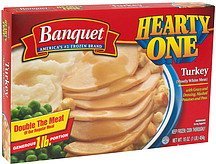
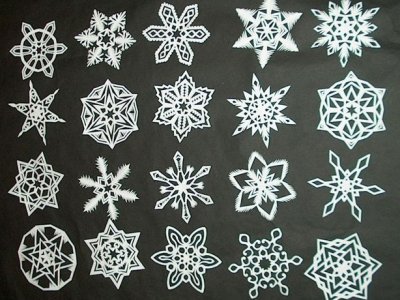
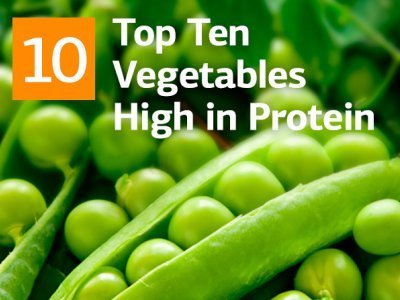

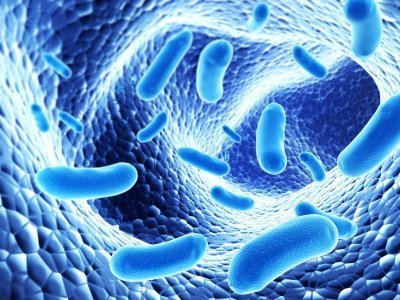


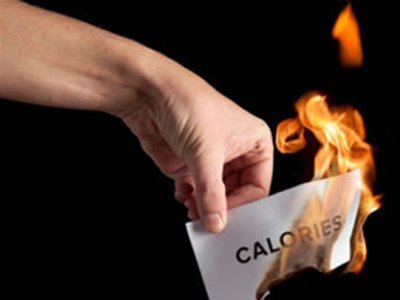
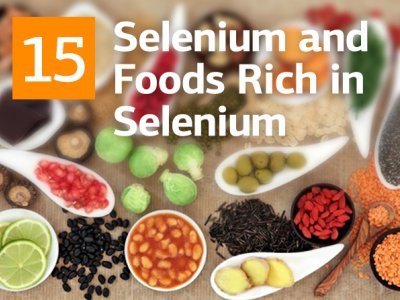
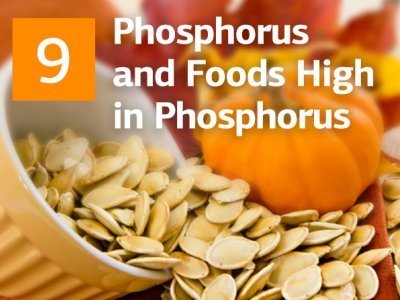
Add your comment